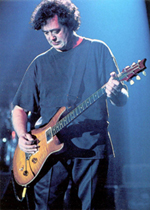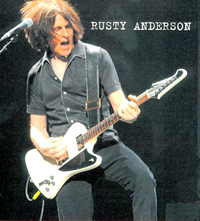
Unit 5, Silveroaks Farm, Hawkhurst
Lane,
Waldron, Heathfield, E.Sussex, UK, TN21 0RS
Tel (0)1435- 813393, International - +44 1435 813393
VAT Reg. No. GB 241 7291 72
 |
TO PLACE YOUR ORDER PLEASE "EMAIL" ADVISING YOUR DELIVERY LOCATION
Please follow below links for information and pictures of the various types of cables we provide
From the commencement of their unique involvement with the Rock Industry in early 1970’s, Pete and Lynda Cornish have always placed a high importance on the quality and reliability of the cables they supply to provide the interconnections in their world famous guitar, bass and keyboard routing systems.
When the first Pete Cornish Effects Pedalboard was built, for
Peter Banks of “Yes”, the only guitar cables available were pvc “curlys” with
molded jacks that would fail after only a few minutes playing. Pete realized
that it was essential to make the cables as reliable as the effects boards he
was building, but it was difficult to convince the musician who had just spent
GBP 1,000 on a guitar that he must spend more of his hard earned cash to plug it
in! It used to be common practice, in the 70’s, to give away guitar cables and
so the shops would seek out the cheapest available, usually costing less that
GBP 1 each.
“curlys” with
molded jacks that would fail after only a few minutes playing. Pete realized
that it was essential to make the cables as reliable as the effects boards he
was building, but it was difficult to convince the musician who had just spent
GBP 1,000 on a guitar that he must spend more of his hard earned cash to plug it
in! It used to be common practice, in the 70’s, to give away guitar cables and
so the shops would seek out the cheapest available, usually costing less that
GBP 1 each.
Pete decided that he would make his own guitar cables of the highest quality and spent two years investigating different types of cable, but he could find no existing cable to meet his exacting specification. The only option was to ask some well known cable manufacturers to produce cable to his design and eventually, after many trials and ‘road tests’, the ultimate design was finalized. Pete’s requirements were for a cable with good handling characteristics, low microphony, low dc resistance, low capacity, good flexibility at low temperatures, easy to solder without “melt back”, screening as close to 100% as possible and two conductors for Pete’s “semi balanced wiring scheme.
Having found the ultimate cable the next part of the quest was to locate the most reliable jack plugs and this was more difficult than it would at first appear. Pete tested many different types from many suppliers and found countless problems: loose internal contacts, leaky insulators, fragile insulators, undersized plugs, wrong tip shape, missing or poor cable clamps, high resistance contacts, corrosion on ground contact etc. etc.
 One type of plug, which at the outset seemed of high quality,
had to be rejected as long term testing revealed that airborne contamination in
industrial areas would produce a thin layer of oxide on the plug surface. This
formed a very good insulator and thus prevented low resistance connection to the
amplifier. Pete has since found that this contamination builds up to a certain
extent on all plug and socket contacts, possibly due to high humidity in the
venue leading to condensation when the stage gear is removed to the trucks after
the gig. Pete now recommends all musicians to “Clean the plugs to Free the Tone”
.
One type of plug, which at the outset seemed of high quality,
had to be rejected as long term testing revealed that airborne contamination in
industrial areas would produce a thin layer of oxide on the plug surface. This
formed a very good insulator and thus prevented low resistance connection to the
amplifier. Pete has since found that this contamination builds up to a certain
extent on all plug and socket contacts, possibly due to high humidity in the
venue leading to condensation when the stage gear is removed to the trucks after
the gig. Pete now recommends all musicians to “Clean the plugs to Free the Tone”
.
For extra long Guitar or bass cables Pete produces a Mini Line Driver Set which can drive up to 500ft of cable without loss of tone or volume.
Pete and Lynda Cornish continue to individually hand assemble their high quality cables, all of which are rigorously tested before receiving the “Pete Cornish” signature. Conductor resistance must be less than 0.5 ohm and Insulation resistance at 500V test voltage must be more than 200Megohms to meet our high quality control standards.
One of the cable types that has previously received little attention is the “loudspeaker” cable. Pete and Lynda now produce a range of Heavy Duty and Extra Heavy Duty cables for this important task and have recently built many of the Extra HD types for Sir Paul McCartney.
Please visit our Authorized Dealers for more info as well.